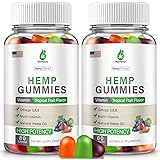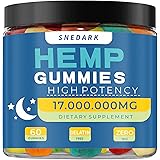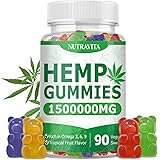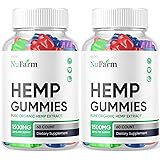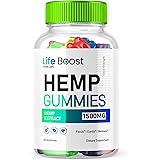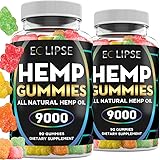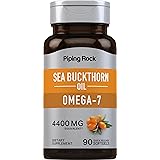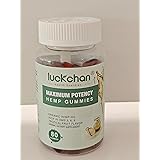Have you ever been told one thing about your health, only to discover a completely different perspective later? It’s a common experience, especially when it comes to navigating the complex world of diet and disease. Perhaps you’ve been advised to drastically cut down on delicious foods like meat, butter, cream, cheese, and eggs to manage your high cholesterol levels, just like the speaker in the video touches upon. This conventional wisdom has been ingrained in our minds for decades. But what if this advice, while well-intentioned, isn’t telling the whole story? What if the real “fix” for high cholesterol and even conditions like cancer lies in an entirely different approach?
Challenging Conventional Wisdom on High Cholesterol
For years, the standard narrative around managing high cholesterol levels has revolved around reducing dietary fat, especially saturated fat. We’ve been told to avoid the very foods our ancestors thrived on. However, as the video highlights, there are accounts of individuals whose cholesterol levels normalized when they adopted a dietary pattern that included these very foods. This scenario often leaves people scratching their heads, wondering why their personal experience or anecdotal evidence contradicts mainstream advice.
The human body is remarkably complex, and its systems, including cholesterol regulation, are influenced by a myriad of factors beyond just the fat content of our diet. Cholesterol itself isn’t inherently “bad”; it’s a vital molecule essential for building cells, producing hormones, and aiding digestion. The challenge arises when its balance and transport become dysregulated, often linked to broader metabolic issues rather than simply eating butter or eggs. Understanding this nuance is crucial for anyone seeking to genuinely improve their metabolic health.
Re-evaluating Dietary Fats and Cholesterol
Let’s delve deeper into the relationship between dietary fats and your cholesterol profile. Not all fats are created equal, and more importantly, the body’s response to fat is often mediated by its carbohydrate intake. When we consume diets high in refined carbohydrates and sugars, our bodies can experience increased inflammation and insulin resistance. This metabolic state can negatively impact the quality and quantity of cholesterol particles, leading to smaller, denser LDL particles, which are more prone to causing arterial damage.
Imagine if you meticulously cut out all “bad” fats, but your diet remained high in processed foods, sugary drinks, and refined grains. Your cholesterol markers, particularly triglycerides and HDL (the “good” cholesterol), might not improve as expected, and could even worsen. Conversely, a diet rich in healthy fats—including those from avocados, nuts, seeds, olive oil, and even grass-fed animal products—when coupled with a reduction in high-glucose foods, can actually support healthier cholesterol profiles by improving insulin sensitivity and reducing inflammation. This approach helps the body optimize its own cholesterol production and utilization.
Glucose: The Unsuspected Fuel for Cancer Cells
The video makes a powerful statement: “cancer cells consume 15 times the glucose of any other cell.” This isn’t just a fascinating tidbit; it’s a foundational principle in understanding cancer metabolism. This phenomenon, known as the Warburg effect, describes how cancer cells preferentially ferment glucose to produce energy, even in the presence of oxygen. This metabolic shift gives cancer cells a distinct survival advantage, allowing them to grow rapidly.
When you drastically reduce the availability of glucose in the body by cutting out high-sugar and high-carbohydrate foods, you essentially starve these cancer cells of their primary fuel source. Without the abundance of glucose they crave, cancer cells become vulnerable. They can’t adapt as efficiently as healthy cells to metabolizing fats for energy, potentially leading to cellular stress and, as the speaker implies, even self-destruction through a process called apoptosis, or programmed cell death. This concept opens up intriguing avenues for metabolic therapies in cancer management.
Metabolic Strategies: Beyond the Traditional Approach
The idea that diet can influence cancer progression isn’t new, but focusing on glucose restriction as a metabolic therapy gains increasing traction. Think about the implications: if cancer cells are so reliant on glucose, then intentionally limiting their access to it could be a powerful tool. This doesn’t mean diet is a standalone cure, but it positions nutritional strategies as a critical complementary approach. Dr. Atkins’s observation that “his cancer patients were going into remission” after dietary changes, even if initially puzzled, aligns with this understanding of cellular metabolism.
A diet emphasizing very low carbohydrate intake, often termed a ketogenic diet, forces the body to switch from burning glucose to burning fat for fuel, producing ketones. Healthy cells can readily adapt to using ketones for energy, whereas many cancer cells struggle. This creates a metabolic differential, effectively making the body’s internal environment less hospitable for cancer growth. Furthermore, this dietary shift can reduce insulin levels and insulin-like growth factor 1 (IGF-1), both of which are known to promote cell growth and proliferation, including that of cancer cells.
Embracing a Low-Carbohydrate Lifestyle for Holistic Health
The insights from the video, though brief, point towards a holistic understanding of metabolic health where cholesterol regulation and cancer prevention share common ground: reducing reliance on high-glucose foods. Embracing a low-carbohydrate or ketogenic lifestyle means prioritizing whole, unprocessed foods. This includes an abundance of non-starchy vegetables, healthy fats (like those found in avocados, olive oil, nuts, and seeds), and quality protein sources (like grass-fed meat, poultry, and wild-caught fish). It’s about shifting your body’s fuel source and improving overall metabolic function.
Such a dietary change can lead to a cascade of positive health outcomes. Beyond potentially normalizing high cholesterol levels and impacting cancer cell metabolism, individuals often report increased energy, improved mental clarity, stable blood sugar, and sustainable weight management. It’s a powerful approach that empowers individuals to take control of their health by working with their body’s natural metabolic pathways, rather than against them. Always consult with a healthcare professional before making significant dietary changes, especially if managing existing health conditions.
The Unexpected Fix Unveiled: Your Cholesterol Q&A
What is the common advice for managing high cholesterol?
The traditional advice is to reduce dietary fats, especially saturated fats found in foods like meat, butter, and eggs.
Is cholesterol always bad for your body?
No, cholesterol is a vital molecule essential for building cells, producing hormones, and aiding digestion; it’s not inherently bad.
How might carbohydrates impact cholesterol levels?
Diets high in refined carbohydrates and sugars can negatively affect cholesterol profiles by increasing inflammation and insulin resistance.
What role does glucose play in cancer cells?
Cancer cells are known to consume a large amount of glucose, using it as their primary fuel source for growth and survival.


